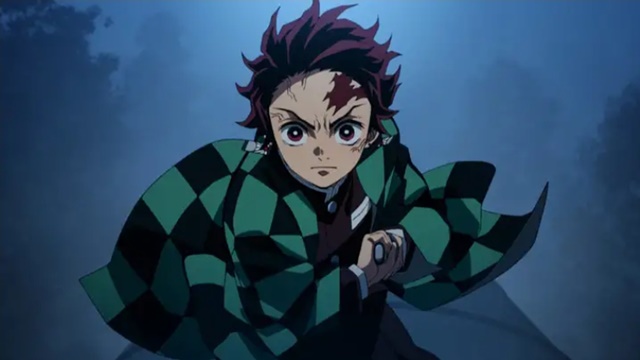#Tadaima, Okaeri is a Vanilla Start to a Complicated World

Season aired: Spring 2024
Number of episodes: 12
Watched on: Crunchyroll
Translated by: ?
Genres: Slice-of-Life, Romance, Drama
Thoughts: If you aren’t active in the fandom world, “omegaverse” is probably not a familiar phrase. It started as a world crafted for fanfiction before eventually joining the published world, though it remains as written media without any television adaptations. Many believed it was impossible to portray a world where people are categorized not just by sex, but also by the concepts of alpha, beta, and omega referenced from wolf packs. It’s especially spicy because regardless of sex, if a character is born as an omega, they are capable of giving birth all the same.
When Tadaima, Okaeri was announced, I was similarly in disbelief. For the first time ever, we were going to see a BL omegaverse onscreen. The story follows married couple Hiro and Masaki as they move to a new neighborhood. Hiro is an alpha, Masaki is an omega and both of them are men. Accompanying them is Hikari, the baby boy whom Masaki gave birth to a few years back, and together, they live their life as peacefully and happily as possible.
Unfortunately, despite what a heartwarming tale this series could’ve been, I found it boring.


Tadaima Okaeri featured too many similar conflicts and resolutions, which plagued the overall story. Something will usually make Masaki feel insecure, Hiro or someone else that Masaki trusts will comfort him, Hikari in his child-like innocence will say something straightforward but also poignant, Masaki regains his confidence, and the family lives happily ever after. This formula was used repeatedly between the arcs, and I quickly got tired of seeing the same story acted out. Instead, I became more interested in the supporting characters, who unfortunately got minimal screentime with much slower relationship development.
This story writing problem also extends to the lack of characterization for the main characters. Hikari is cute, playful, and loving. He’s a textbook baby who doesn’t do anything wrong, and seeing him only made me miss the babies from School Babysitters where all babies have a unique factor to their personalities and also have a mischief that accompanies them as they explore the world. Despite my critiques of Hikari, he’s still the most enjoyable to see on screen. Hiro is a good husband who dotes on Masaki and his babies, but falls into typical alpha stereotypes of being confident, successful, and protective. Similarly, Masaki as the omega remains constantly insecure, shy, and motherly. There is no character development for them outside of the typical omegaverse dynamics, and because of that, Hiro and Masaki’s scenes can often feel overdramatic. This could be because the voice actors are not doing a good job of selling the actual story, but with how repetitive the arcs were, it’s equally possible that the story is what’s holding back their performances.


Meanwhile, the supporting characters have more complexity. Matsuo is another alpha, and Hiro’s childhood friend, who embodies many of the manly alpha traits. At the same time, he also shows acute sensitivity to raising children due to being the oldest child in a large family. As a result, Matsuo comes off more matronly, and his worrywart tendencies add a flavor to his character that Hiro is desperately missing. His love interest is Yuki, the only beta of the cast, and despite being tagged as the most “normal” of the three classes in omegaverse, he also shows the most nuance. He struggles with communication, finds it easier to speak to children who are straightforward and direct, and is constantly insecure of his inability to read people’s moods or facial expressions. His interactions with children slowly start to build his confidence throughout the course of the series, which allows him to communicate more with people his age. It’s a shame that the more human characterizations of the supporting cast simply don’t get the screen time they deserve while the main cast is just so standard.
The good news is that Tadaima, Okaeri is an easy anime to watch. Unlike the painful production of A Condition Called Love, the visuals of the series can be passively enjoyed. The colors are bright and pastel to match the overall slice-of-life feel, and the animation is enough to win over viewers. There isn’t a single moment where the characters look out of place, and while it can’t be compared to A Sign of Affection’s production values, the team accomplishes enough to where it wouldn’t hurt to even rewatch scenes.


As the first BL omegaverse adaptation, a subgenre of the BL world that has only continued to grow in popularity, Tadaima, Okaeri does the job of softly introducing the audience to the mechanics of the world. Omegas are usually treated lesser, Alphas are almost idolized, and Betas are just normal people who often feel forgotten. The series never dives fully into the implications of what this prejudice means – only hinting about the underlying issues of society. I personally think it would’ve made for a stronger story if they did explore more of the operations of an omegaverse world, but I also understand why the team behind the adaptation would rather gently let people in. There will certainly be viewers who don’t know how extensive and complex omegaverse can be and to immediately dive in so deeply can be off-putting.
However, for someone like me who’s always been more interested in the bigger view of society, I only hope Tadaima, Okaeri is the beginning of omegaverse adaptations. It makes sense that the introduction of the anime world to omegaverse is a vanilla one, as long as it paves way to other adaptations of omegaverse stories that are willing to take risks with the characters, the world, and the overall plot.
Rating
Plot: 5 (Multiplier 3)
Characters: 6.5 (Multiplier 3)
Art/Animation: 7 (Multiplier 2)
Voice acting: 6.5
Soundtrack: 7
FINAL SCORE: 62
If you liked the article, do not forget to share it with your friends. Follow us on Google News too, click on the star and choose us from your favorites.
If you want to read more anime-manga articles, you can visit our anime-manga category.




